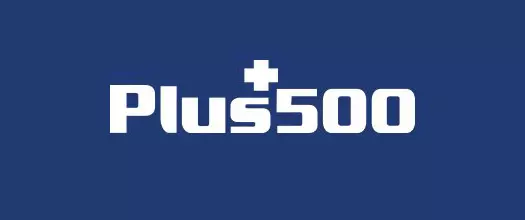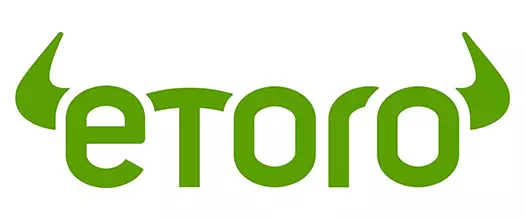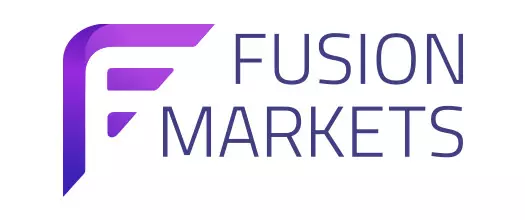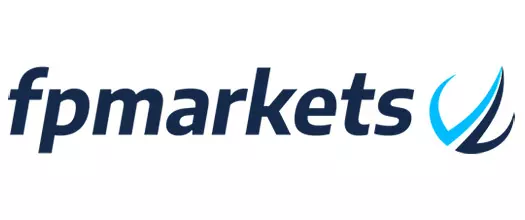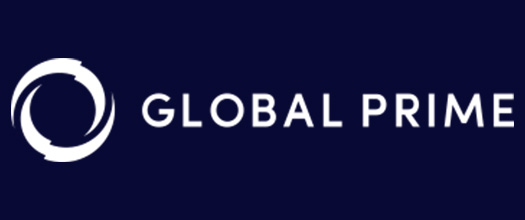- Jump to:
- Main features of the best Romania Forex brokers
- Forex Legislation
- Financial Regulators
- Payment Methods
- Trading Software
- Mobile Trading
- FAQ
Our team of expert traders tested many regulated and trustworthy Forex brokers that accept traders from Romania and compiled a top list of the best among them. Each broker operating in Romania received a quality score based on several factors, including Trustpilot rating, regulation, fees and commissions, available trading platforms, customer service, and more.
 Plus500 USThis content applies only to Plus500 US and clients from the United States. Trading futures involves the risk of loss.
Plus500 USThis content applies only to Plus500 US and clients from the United States. Trading futures involves the risk of loss. eToro61% of retail investor accounts lose money
eToro61% of retail investor accounts lose money Fusion Markets74-89% of retail's CFD accounts lose money
Fusion Markets74-89% of retail's CFD accounts lose money FP Markets73.85% of retail investor accounts lose money
FP Markets73.85% of retail investor accounts lose money Global Prime74-89% of retail CFD accounts lose money
Global Prime74-89% of retail CFD accounts lose money Pepperstone75.5% of retail investor accounts lose money
Pepperstone75.5% of retail investor accounts lose money
Below you can find a comprehensive comparison table of forex brokers for traders in Romania. We rank them based on several factors, including regulation, spreads and commissions, Trustpilot rating, trading instruments, trading platforms, and deposit and withdrawal methods.
Our team has thoroughly evaluated all the brokers listed below using TradingPedia’s exclusive methodology.
Main features of the best Romanian Forex brokers
- Brand
- Trading platforms
- Minimum deposit
- Regulations
- Trading instruments
- Spreads
- Leverage for Forex CFDs
- Leverage for Crypto CFDs
- Leverage for Indices CFDs
- Deposit methods
- Withdrawal Methods
- Commission per Lot
- Contact details
Romania may not be the largest market for foreign exchange trading, but, with its population of more than 20 million, it is among the biggest economies in Eastern Europe. Forex trading is legal and regulated, and investors can rely on a wide variety of online brokers for access to the global markets.
Before looking at the Forex legislation in the country and the brokers that accept Romanian clients, traders need to understand some crucial aspects of the Romanian economy. The country joined the European Union in 2007, and, since then, it has been trying to catch up with the rest of the Union in terms of productivity and GDP. In the past decade, Romania has reported some of the fastest growth rates across Europe. Today, it is the 40th largest economy in the world, with an annual output of $516.5 billion.
Although Romania is on its way to adopting the euro, it still uses its national currency, the Romanian leu (RON). It is still among the poorest and least advanced countries in the EU, but, due to its rapid economic growth and its reputation for being an electronics, technological, and mobile hub in Central and Eastern Europe, it is an attractive destination for investment and doing business. The liberal approach to financial markets, however, does not mean that authorities are not focused on strictly regulating the sector – on the contrary, several unlicensed CFD and Forex brokers were forced to close their offices in Romania following a probe into their operations, and there have even been arrests.
Romanian Forex legislation
Trading on the foreign exchange market is completely legal in Romania as long as FX brokers are authorised to offer financial services in the country. The foreign exchange regime in Romania is set by Regulation No. 4/2005 issued by the National Bank of Romania. It determines who has access to the Forex market, the restrictions on buying and selling foreign currency, and other provisions.
According to the legislation currently in effect, anyone has access to the foreign exchange market in Romania. However, trading foreign currency may be carried out only by Forex market intermediaries – there are no limitations on this activity for Romanians who access Forex via exchange houses and credit institutions. To legally offer their services to residents of the country, brokers need to hold a licence from the local regulatory body, the Financial Supervisory Authority, or ASF (Autoritatea de Supraveghere Financiara).
As a member of the EU, Romania adheres to all financial regulatory directives of the European Union as per the European MiFID financial harmonisation law. This means that the country allows brokers that are registered and licensed in another EU jurisdiction to operate in Romania. For instance, brokers licensed by the Cyprus Securities and Exchange Commission, better known as CySEC, or by the Financial Conduct Authority (FCA) in the UK can legally offer their services to Romanian traders.
Certain restrictions set by the European Securities and Markets Authority (ESMA) also apply to the trading of CFDs (contracts for difference). These rules affect retail clients of online brokers and were designed to enhance investor protection. Under them, Forex brokers operating in Romania are not allowed to offer bonuses and other incentives for trading CFDs. Brokers are also required to close out clients’ open CFDs at 50% of the minimum required margin and to offer negative balance protection, which restricts clients’ losses.
Moreover, there are several restrictions on the maximum leverage brokers can offer to retail clients when trading CFDs. The leverage limit for major currency pairs is 1:30, while for minor Forex pairs, gold, and major indices it is 1:20. The maximum leverage when trading commodity CFDs is 1:10, and 1:5 for individual equities and other reference values. The limit for trading crypto CFDs is only 1:2.
Romanian financial regulators
The capital market is regulated by the Romanian Financial Supervisory Authority (ASF, Autoritatea de Supraveghere Financiara). This autonomous agency replaced and took over the duties of the National Securities Commission (CNVM), the Insurance Supervisory Commission (CSA), and the Private Pension System Supervisory Commission (CSSPP).
The authority regulates credit rating agencies, participants in financial markets, and trading in all kinds of instruments. The ASF takes measures against insider dealing and market manipulation and is the country’s national authority competent to enforce EU financial regulations. It also regulates the main exchanges in Romania: the Bucharest Stock Exchange (BVB) and the Sibiu Monetary Financial and Commodities Exchange (BMFMS), a specialised derivatives exchange.
The ASF is a member of several international institutions, including the International Organization of Securities Commissions (IOSCO), the European Securities and Markets Authority (ESMA), the European Insurance and Occupational Pensions Authority (EIOPA), and the International Association of Insurance Supervisors (IAIS).
Forex payment methods in Romania
Traders looking for a suitable online Forex and CFD broker in Romania should opt for a provider that offers the Romanian leu as a base account currency. Of course, clients can open accounts in euro, US dollars, or any other foreign currency, but this would incur extra costs due to the exchange fees charged. Another alternative is to make deposits into their trading accounts using a card or an e-wallet in their preferred foreign currency.
When it comes to the payment methods available in Romania, Forex traders have a wide choice of credit and debit cards, digital wallets, instant banking services, prepaid methods, and many others. However, the market is dominated by credit and debit card payments, and the most popular brand in the country is Visa. Brokers also offer Mastercard, Maestro, Diners Club International, and others.
Those who do not want to use their credit cards for online transactions on the websites of offshore Forex brokers can opt for a digital wallet. These modern, convenient, and safe methods allow users to send or receive money online quickly and cost-effectively. Digital wallets, or e-wallets, as they are also known, facilitate fast and cost-effective transactions over the internet and can be used for online shopping, paying bills, or trading on the foreign exchange market. Popular e-wallets include PayPal, Neteller, Skrill, WebMoney, and ecoPayz.
Online banking, however, remains one of the most popular ways to make online payments. Although online banking transfers are often slower than transactions via e-wallets or credit cards, this type of payment is considered incredibly safe. Moreover, it is probably the most accessible option because most people already have a bank account – to use online banking for their trading activity, they simply need to contact their bank and activate online banking.
Popular trading software in Romania
One of the most important things to consider when choosing an online Forex broker is the trading software offered by the firm. It facilitates the trading process on the foreign exchange market and must be fast and reliable to guarantee real-time trades and instant execution. While the performance of a trading platform is crucial, traders should also take their time to assess its functionality and overall ease of use.
To do that, investors are advised to open a demo account with the broker they have chosen. This will help them determine whether the trading platform performs well, which global markets and financial instruments they can access, and whether the trading conditions (spreads, commissions, leverage, etc.) are favourable. Overall, Romanian traders can use the same platforms available to traders from all around the world.
Most brokers welcoming Romania-based clients provide access to what is probably the most popular trading platform, namely MetaTrader 4. It was developed by MetaQuotes Software, a Cyprus-based developer originally from Russia. Released 15 years ago, the platform is widely considered the best option for Forex trading.
With its user-friendly interface and a wealth of advanced tools and features, it is suitable for both beginners and experienced traders. Moreover, MT4 can be installed on any Windows, Linux, or Mac computer. Some traders prefer the web version, which can be opened directly in the web browser rather than being downloaded. Of course, brokers also offer their clients MT4 apps for Android and iOS devices.
Another popular software platform for trading Forex is cTrader, created by Cyprus-based company Spotware Systems Ltd. The system is offered by some of the leading brokers and is mostly used for Forex and CFD trading. It offers a wide variety of customisation options, advanced trading features, automated trading, and more. Just like MetaTrader 4, cTrader comes with desktop and mobile versions, various tutorials, and social trading.
Mobile trading in Romania
More and more investors around the world prefer trading directly from their mobile phones. When it comes to Forex, in particular, it is essential to stay up to date with currency and economic news. Mobile trading is, therefore, not only convenient but also extremely useful to every trader – you can receive notifications, track prices, and open or close positions at any time and wherever you are, directly from your phone.
Romanian traders are no exception, and an increasing percentage of them are now accessing trading platforms on smartphones and tablets. The majority of leading Forex and CFD brokers offer fast, intuitive mobile apps that can be downloaded for free either from the broker’s website or from Apple’s App Store and the Google Play Store.
Traders should know, however, that not all apps perform as well as they should. This depends on the particular app, the trading platform used, and the condition of the mobile device. For fast performance, users should make sure their phone or tablet has the latest software updates and connects to the internet via a stable and secure Wi-Fi or 4G/5G network.
